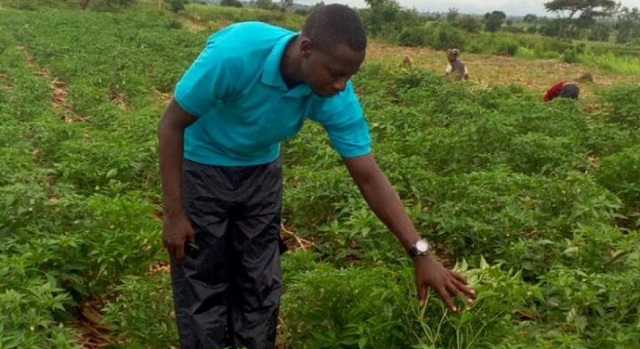
Kampala, Uganda | STEPHEN NUWAGIRA | Rwanda’s agriculture ministry is changing the process of seed and fertiliser distribution, according to the Minister of State minister for Agriculture, Fulgence Nsengiyumva.
Nsengiyumva said Rwanda Agriculture Board (RAB), which has hitherto been central in the process, will no longer be directly involved, leaving the distribution of inputs to be handled by sector and district authorities.
The RAB retains its supervisory role to ensure accountability.
“This strategy is good for business and also supports our targets to improve crop output, but it doesn’t mean that we are removing RAB from its accountability role,” he said.
Only farmers registered with local authorities will access the subsidised seeds and fertilisers, in a move the minister said is intended to ensure proper monitoring and accountability.
Smart Nkunganyire, a portal for input distribution, monitoring and reporting, has also been developed to strengthen the delivery system and ensure farmers get input timely.
The moves are part of a push for new approaches to enhance agriculture production to ensure food security and boost incomes of farmers.
The shift to the new system is intended to address the problem of delays in seed and fertiliser distribution.
“We adopted this approach because the old one has been causing delays as suppliers were not being paid in time, making it hard for them to import and deliver inputs in time,” Nsengiyumva said.
Addressing local leaders and extension staff from the three districts of the City of Kigali – Gasabo, Kicukiro and Nyarugenge ahead of the start of season C next month, the minister urged local leaders and extension staff to ensure that farmers plant in time.
“Ensure that every square inch of land that’s currently redundant is cultivated. Also encourage people, especially those prone to weather vagaries in marshlands, to embrace quick growing and high value crops like vegetables and fruits,” Nsengiyumva said. Local leaders from Kigali said the problem of delays in seed and fertiliser delivery had previously hurt production.
Challenge of flooded marshlands
Earlier, the vice mayors in charge of economic development from the three districts expressed concern over rampant flooding in key marshlands in Kigali, saying it has delayed land preparation for the coming planting season.
Many farmers in Kigali cultivate in marshlands, growing mostly rice, vegetables, maize and some beans.
The recent long rains left most marshlands flooded, including Kajevuba, Kinyinya, Rurambi, Rugenge and Bumboga, flooded affecting land preparation plans for season C.
Kicukiro District Vice Mayor in charge of Economic Development, Angelique Mukunde, said innovations were required to pump water from the marshlands so that farmers can use them.
The district is implementing a policy where “every piece of idle land” is being reclaimed for agricultural production as part of efforts to boost output and household income, and ensure food security.
The government is also banking on the sector to boost export volumes and earnings.
Agriculture contributed 31% to GDP in the first quarter of the year after services that added 47%; industry sector 15%.
The minister encouraged local authorities to find solutions to their problems instead of “running” to the central government for help every time.
“You are in charge of the budget; you are responsible; you are local government; the budget is in your hands, be proactive and stop waiting for RAB or central government to find solutions for you. That’s the only way we can achieve out targets,” the minister advised.
He said they should encourage farmers to embrace irrigation and water harvesting to mitigate effects of climate change.
The government provides a 50% subsidy on small irrigation equipment to encourage framers to adopt modern farming practices and also spur crop productivity and make the sector more sustainable.
“We have to work together with people to uplift the agriculture sector because it is key the country’s development,” said Parfait Busabizwa, the City of Kigali vice mayor in charge of economic development.
Farmers speak out
Anonciata Mukafunka, a farmer and peer educator in Jabana sector Gasabo district, called on government to include beans on the list of subsidised seeds, saying a lot of people grow the cereal but lack money to buy quality seeds. “Most people want to grow beans but they cannot afford better seed at the current market prices, affecting country’s efforts geared at food security and boosting household income,” Mukafunka said.
Government provides seed subsidies for only maize, soya and wheat under the crop intensification programme, paying half the cost. A kilogramme of improved maize is at Rwf2,300 and beans cost Rwf800 each kilo on the open market, which Mukafunka said is too high for ordinary farmers especially rural areas.
 The Independent Uganda: You get the Truth we Pay the Price
The Independent Uganda: You get the Truth we Pay the Price


